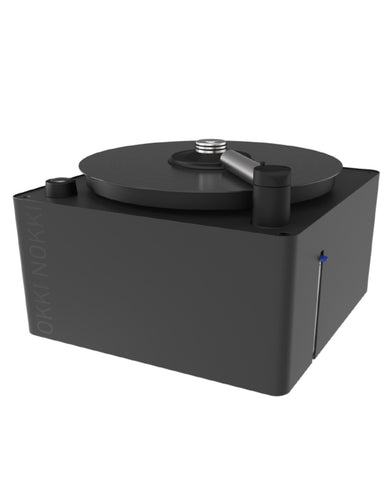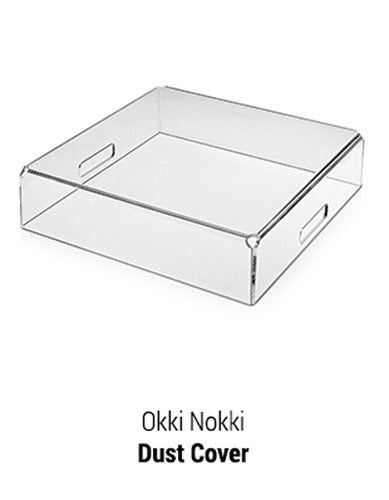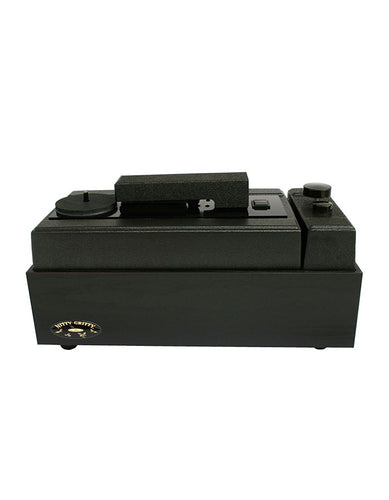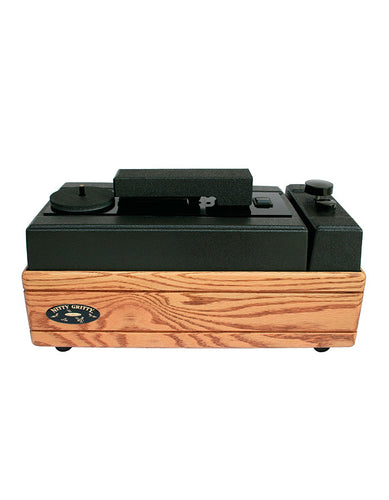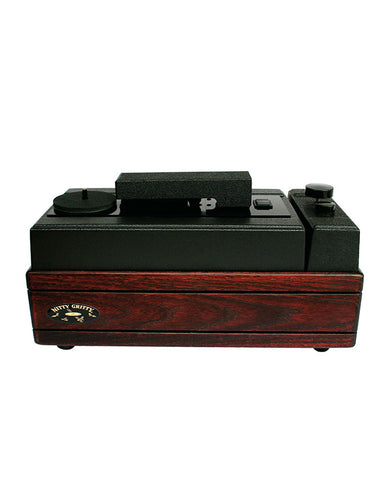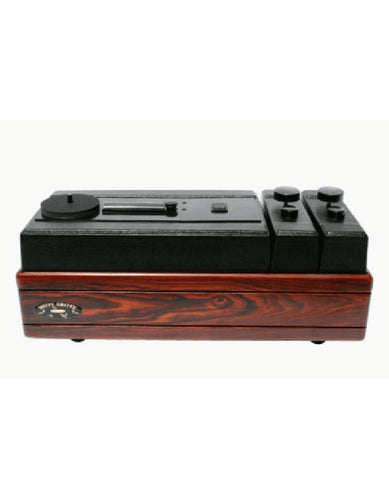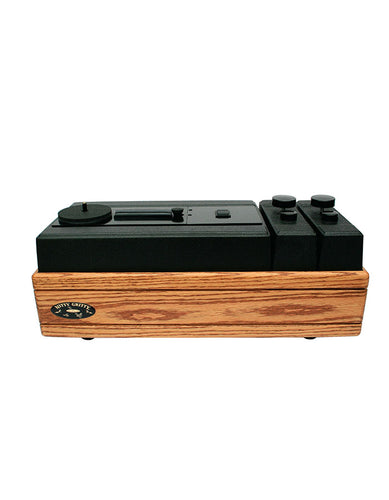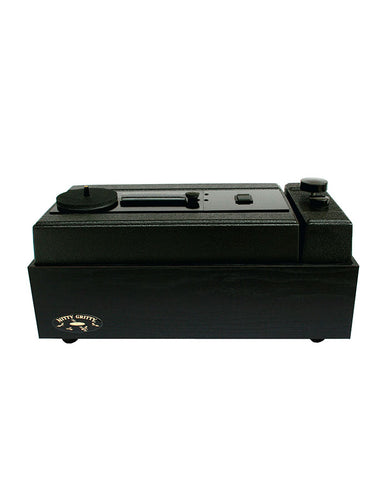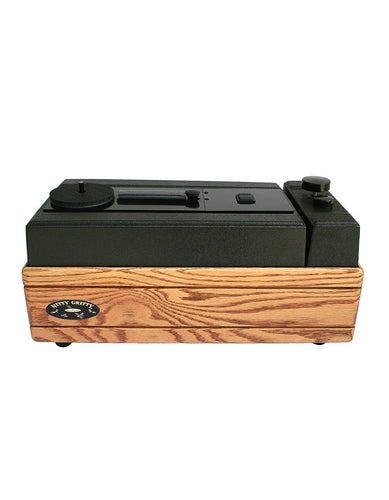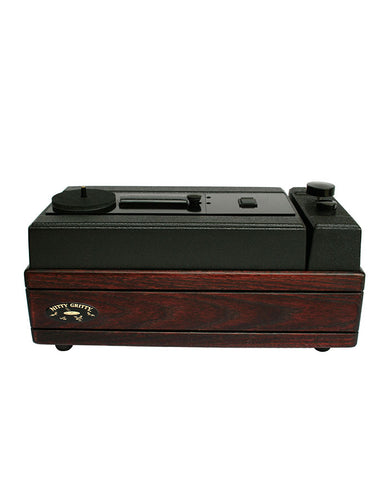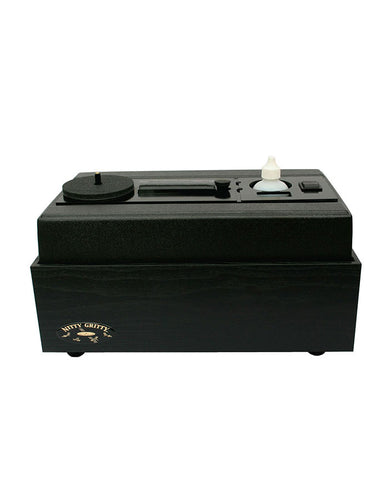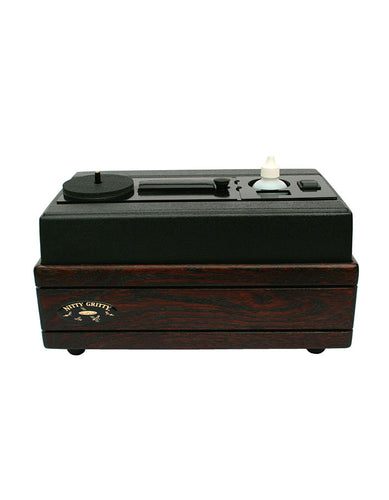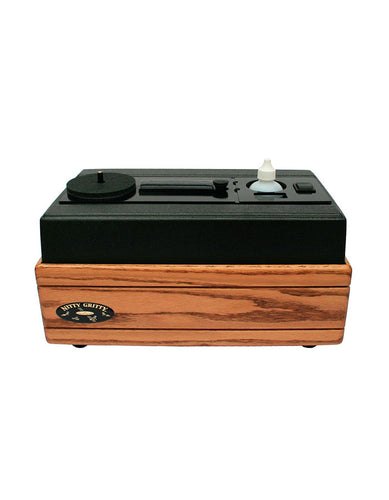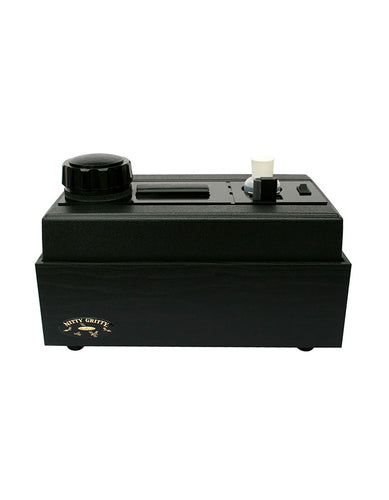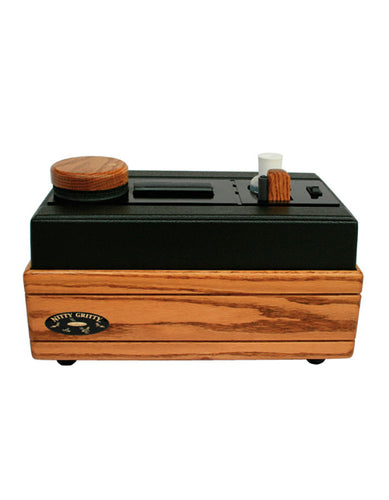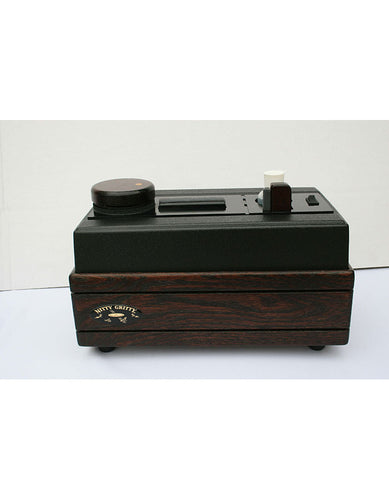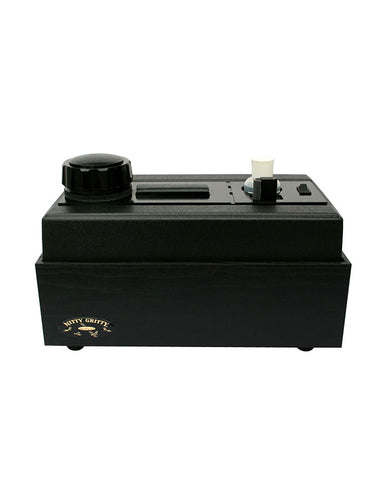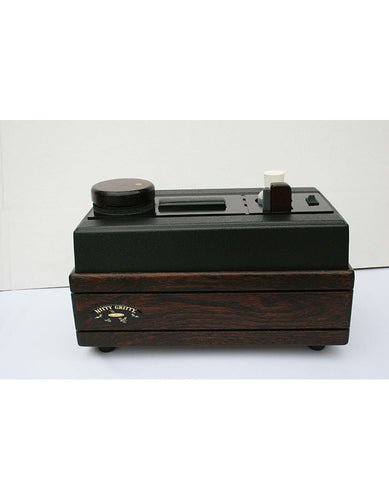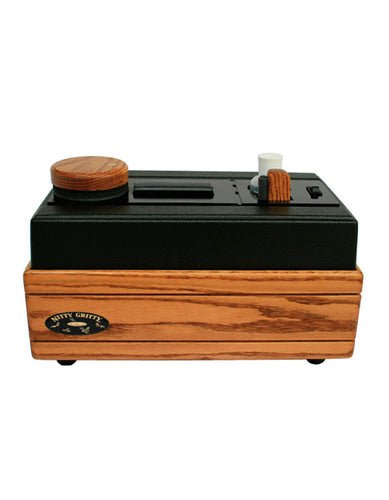
Filter
Okki Nokki RCM-ONE DV
$749.00
Nitty Gritty Mini-Pro 1 Record Cleaner
$1,478.00
$1,643.99
Nitty Gritty Mini-Pro 2 Record Cleaner
$1,563.00
$1,736.99
Nitty Gritty Model 2.5 FI XP Record Cleaner
$1,197.00
$1,329.99
Nitty Gritty Model 1.5 FI Record Cleaner
$1,004.00
$1,115.99
Nitty Gritty Model 2.5 FI Record Cleaner
$1,088.00
$1,208.99
Nitty Gritty Model 1.5 Record Cleaner
$831.00
$922.99
Nitty Gritty Model 2.5 Record Cleaner
$910.00
$1,010.99
Nitty Gritty Master 1 Record Cleaner
$559.00
$620.99
Nitty Gritty Master 2 Record Cleaner
$633.00
$702.99
Nitty Gritty Model 1.0 Record Cleaner
$524.00
$581.99
Nitty Gritty Model 2.0 Record Cleaner
$599.00
$664.99
All products are loaded.
What is a record cleaning machine (RCM) and how does it work?
A record cleaning machine is a device that removes dirt, dust and debris from vinyl records. It uses
either vacuum suction or ultrasonic technology to clean the grooves. Vacuum based machines apply
cleaning fluid, agitate the surface and then vacuum the residue. Ultrasonic machines use high frequency
sound waves to dislodge contaminants. Both methods improve playback quality and extend the life of your
records.
Why use a record cleaning machine instead of manual cleaning?
RCMs clean deeper and more effectively than manual methods. They get into the grooves that manual
brushes miss. They also reduce the risk of damage from improper cleaning techniques like uneven pressure
or abrasive materials. An RCM also saves time when cleaning multiple records.
What’s the difference between vacuum-based and ultrasonic record cleaning machines?
Vacuum-based RCMs use a combination of cleaning fluid and suction to clean dirt, good for everyday
cleaning. Ultrasonic machines use sound waves in a water bath to clean deeper, target hard to remove
grime. Ultrasonic machines are often quieter but may cost more. Vacuum models are generally more
portable and good for casual collectors.
How often should I clean my vinyl records with a record cleaning machine?
Clean new records before first play to remove factory residue or packaging dust. After that, clean as
needed, depending on usage and storage conditions. Records stored in anti-static sleeves may need less
frequent cleaning, while heavily used records should be cleaned regularly to preserve sound quality.
Can I use any cleaning solution in my record cleaning machine or are specific solutions
required?
You should use cleaning solutions recommended by the RCM manufacturer. Generic or homemade solutions may
leave residue or damage the record. Most approved solutions are alcohol free and designed to evaporate
quickly without harming the vinyl or labels. Never use tap water as it may contain minerals that can
scratch or contaminate the records.
Is it safe to clean vintage or delicate records with a record cleaning machine?
Yes, but be extra careful. Use low-power and gentle cleaning solutions to avoid harming fragile vinyl or
label artwork. Test the machine with a less valuable record first if you’re unsure. For older 78 RPM
shellac records avoid using ultrasonic machines or water based fluids unless specifically designed for
them.
How do I maintain and clean my record cleaning machine?
To keep your RCM running smoothly empty waste tanks regularly and rinse them as needed. Replace filters,
brushes or cleaning pads when worn and check moving parts for proper function. For ultrasonic machines
change the water and solution after every cleaning session to prevent dirt buildup. Follow the
manufacturer’s maintenance schedule.
Are there any records that shouldn’t be cleaned with a record cleaning machine?
Yes, some materials like shellac (used in 78 RPM records) or lacquer may not be compatible with
ultrasonic cleaning or water-based fluids. These records are more delicate and can degrade with improper
cleaning. For such materials use specialized cleaning techniques or machines designed for older records.
How long does the cleaning process take with a record cleaning machine?
2-5 minutes per record, depending on the machine and cleaning cycle. Ultrasonic machines may require
additional time for drying, vacuum-based machines often clean and dry records faster. Time will vary
depending on how dirty the record is and if multiple cycles are needed.
Can record cleaning machines remove scratches or just dirt and debris?
Record cleaning machines can’t repair scratches as these are physical damage to the vinyl surface. But
they can remove dirt and debris in the grooves which can sometimes minimize noise caused by particles
caught in scratches. Professional restoration services or playback adjustments may be needed to fix
scratches.
Do record cleaning machines reduce static on vinyl records?
Yes, many RCMs reduce static by using anti-static cleaning solutions or processes. Ultrasonic machines
in particular are great at eliminating static during cleaning. Reducing static prevents dust from
settling back on the record and improves playback quality by reducing pops and clicks.
What to consider when buying a record cleaning machine for my collection?
Budget, collection size and cleaning needs. Ultrasonic machines are for collectors with large, valuable
collections that need deep cleaning. Vacuum-based machines are more affordable and portable for smaller
collections. Look for ease of use, compatibility with different record sizes and replacement parts.



